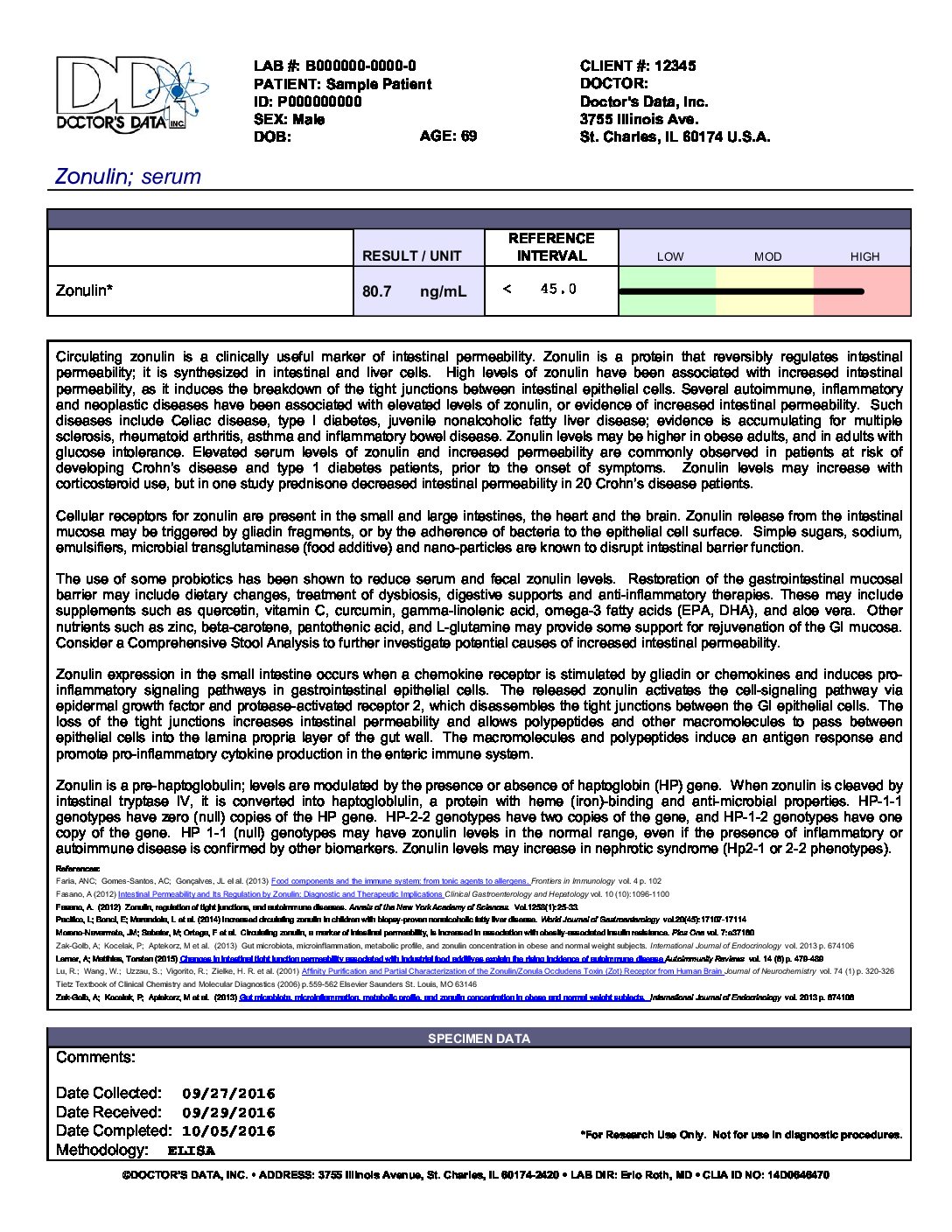Description
Test Analyte: Zonulin Family Protein
Test Sample: Blood
Zonulin Family Protein is an alternative to the long accepted Lactulose Mannitol Test for intestinal permeability (“Leaky Gut”), but without the need for a Mannitol prescription. This test requires a blood draw by a local phlebotomist. Elevated levels of ZFP have been associated with metabolic syndrome, obesity, and several autoimmune, inflammatory, mood disorders, and neoplastic diseases. Such diseases include Celiac disease, type I diabetes, juvenile nonalcoholic fatty liver disease, and evidence is accumulating for multiple sclerosis, rheumatoid arthritis, asthma, and inflammatory bowel disease. The test may be used as a clinically equivalent alternative for those who don’t want to use the “sugar” load test.
This test is useful for:
- Mood Issues
- Celiac disease
- Non-celiac gluten sensitivity
- Type I diabetes
- Juvenile nonalcoholic fatty liver disease
- Multiple sclerosis
- Rhuematoid arthritis
- Asthma
- Inflammatory bowel disease
- Adult glucose intolerance
Detailed Information
This test measures a zonulin family protein (ZFP), identified as properdin. High serum levels of ZFP (antigen) are correlated with abnormal results of the Lactulose Mannitol test; the long-accepted standard for intestinal permeability. Elevated levels of ZFP have been associated with metabolic syndrome, obesity, and several autoimmune, inflammatory and neoplastic diseases. Such diseases include Celiac disease, type I diabetes, juvenile nonalcoholic fatty liver disease, and evidence is accumulating for multiple sclerosis, rheumatoid arthritis, asthma and inflammatory bowel disease. Elevated serum levels of ZFP and increased permeability are commonly observed in patients at risk of developing Crohn’s disease and type 1 diabetes patients, prior to the onset of symptoms. ZFP levels may increase with corticosteroid use, but in one study prednisone decreased intestinal permeability in twenty Crohn’s disease patients. Triggers associated with elevated levels of ZFP and breakdown of tight junction protein complexes (TJP) include gliadin fragments and the adherence of bacteria to the epithelial cell surface. Simple sugars, sodium, and food additives such as emulsifiers, microbial transglutaminase and nano-particles also appear to disrupt epithelial barrier function. Clinical intervention to normalize intestinal permeability should first attempt to eliminate the trigger(s). Consider a Comprehensive Stool Analysis to further investigate potential causes of increased intestinal permeability.




